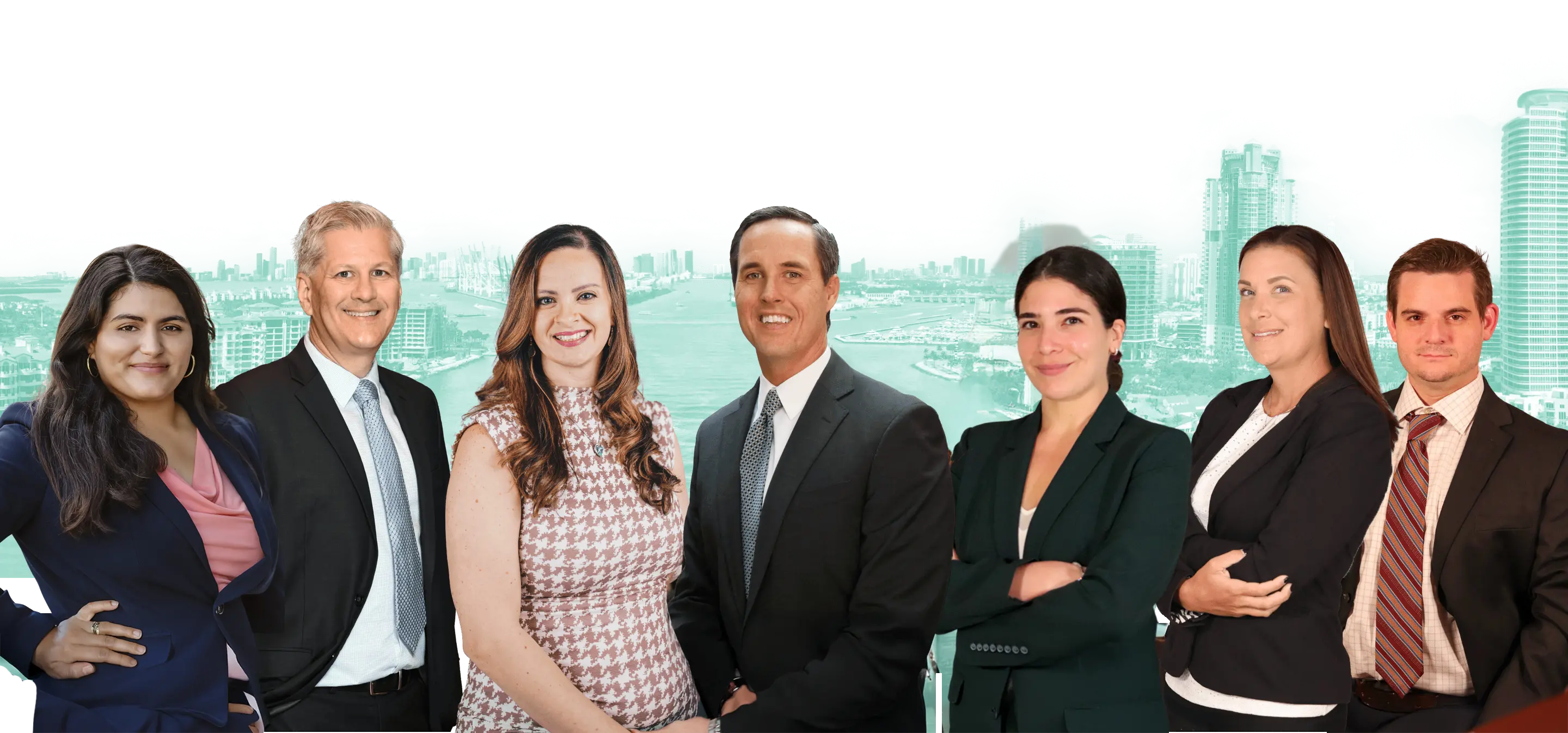While train accidents are rare in Fort Myers, they do happen. Injuries can range from minor cuts, scrapes, and bruises to catastrophic injuries and even death. As with any public transportation, railroad companies are responsible for keeping vehicles and equipment, including tracks, in good working condition.
When a train hits something on a track, especially something as large as a car or truck, there is a good chance of the train derailing. If you have been injured in a train wreck, contact a Fort Myers personal injury lawyer at Viles & Beckman for a free case evaluation.
Causes of Train Accidents
Train accidents have two major causes: derailment and collisions. Because of the size and weight of a train, it is very easy to get injured in a train wreck. Additional causes of train accidents include:
- A collision with something on the tracks: This can include a vehicle failing to abide by traffic laws and crossing the track in front of a train or an object left on the tracks by someone.
- A collision with rock and debris that might fall on the tracks: While this usually happens in mountainous areas, it can also occur in Florida.
- Poorly maintained tracks can create significant hazards: If tracks are loose, they can cause the train to derail. Aging tracks and railroad ties can also be problematic; broken ties or rusted tracks increase the likelihood of a derailment.
- A weakened bridge: Old wooden bridges or rusted metal bridges that have not been properly maintained could collapse.
- Snow and ice on the tracks: Though less common in Florida, the occasional appearance of snow and ice on railroad tracks may not be cleared in time for a scheduled train.
- Engineers under the influence of drugs, alcohol, or otherwise incapacitated: Operating while impaired compromises safety, decision-making, and performance, posing significant risks to projects and personnel.
- Engineers that do not follow the rules of railroad traffic laws: This includes exceeding speed limits, running lights, failing to slow down at road intersections, or taking curves too fast.
- Trip or slip and fall accidents on the train or at the station: Train employees are responsible for keeping the floors of both the train and the station free of trip hazards and promptly cleaning up any spills. This includes water tracked in from rain, which should either be cleaned up or marked with wet floor signs to warn passengers.
- Food poisoning or foreign objects in food: If you are on a trip and the train serves a meal, the train company could be liable for serving food that makes you sick or causes choking.
- Unprotected high-voltage cables: These are found in train stations and should be covered or otherwise protected to prevent accidental contact or falls into the cable.
- Stepping on and off the train: Train employees are responsible for ensuring that passengers can board and deboard without the risk of falling. This includes guiding those who need assistance, whether stepping from the train to the platform or down the steps when a platform is not level with the train.
- A track switch that is not working properly: A faulty track switch can cause the train to move in the wrong direction, leading to dangerous derailments or collisions with other trains.
- A malfunctioning engine or car: Mechanical failures within the engine or train cars can lead to unexpected stops, accidents, or even derailments if not addressed promptly.
- Employees who are not safety-conscious, exercise poor judgment, or are otherwise negligent: When staff neglect safety protocols or make poor decisions, passengers and operations are put at serious risk, potentially leading to accidents or other hazardous situations.
- Cargo that is not properly loaded and balanced: Uneven or unstable cargo can shift during transit, causing the train to lose balance, which increases the likelihood of accidents or damage.
- Explosive cargo that blows up during the trip: Mishandling or improper storage of explosive materials can trigger dangerous detonations, resulting in serious harm to the train, its passengers, and surrounding areas.



Expect More, Receive More: Legal Support That Feels Like Family
Injuries You Might Suffer in a Train Crash
If you are in a train crash, you could suffer from many types of injuries depending on several factors, including whether the train derails, whether the train collides with another object, whether you are standing or sitting, and even where you are sitting in the car.
You may believe you don’t have any severe injuries. However, it is crucial to seek medical care or medical treatment immediately to avoid worsening the damage. Documentation of your injuries will provide your Fort Myers train accident lawyer with important evidence to seek maximum financial compensation.
Injuries may include:
- Bumps, bruises, cuts, scrapes, and abrasions: These may heal quickly unless you have an underlying condition.
- Strains, sprains, pulled muscles, and other soft tissue injuries: These generally take four to six weeks to heal unless you need surgery to reattach a muscle or other type of surgery. While underlying conditions do not usually cause infections with these types of injuries, if you have to have surgery, you will have an open wound that could take longer to heal. The open wound would also have a higher risk of becoming infected.
- Fractures: A minor fracture does not break the skin and usually has a low risk of infection. However, a compound fracture does break the skin. Additionally, you usually have to have surgery to repair the fracture. Compound fractures do have a higher risk of becoming infected, especially if you have an underlying condition that causes slow healing or a lowered immune system.
- Head Injuries: Often referred to as traumatic brain injuries (TBIs), which can range from mild concussions to severe brain damage. Concussions, a common form of TBI, have been linked to chronic traumatic encephalopathy (CTE), a degenerative brain condition.
- Neck and back injuries: These injuries can be catastrophic and lead to lifelong consequences. These injuries may result in chronic pain or even paralysis. A broken back, spinal cord injury, herniated discs, or severe whiplash can all have lasting impacts on one’s quality of life, making it crucial to address these injuries promptly and thoroughly with legal and medical professionals.
- Wrongful Death: A train wreck can become a fatal accident if you are thrown from the train or if something in the train causes extensive fatal injuries.
Always discuss all of your injuries, no matter how minor, with our lawyers. Be sure to mention any underlying conditions that may delay healing. Full transparency with your Fort Myers train accident lawyer will increase your chance of fair compensation if the responsible parties are held accountable.
Damages You Should Seek Following a Train Accident
Three types of damages could be awarded to the injured parties of a train accident who take legal action: special, general, and punitive damages. Special damages are also known as economic damages and have a specific dollar amount attached. General damages are also known as non-economic damages and have no dollar amount attached. Punitive damages are awarded in order to punish the defendant in addition to special or general awards.
Special Damages
Economic damages are the easiest to calculate, as they have a specific amount attached to them. Special damages include:
- Expenses for medical treatment given to injuries directly related to the accident
- Lost wages for the time you were out of work because of injuries from the accident
- Replacement or repair of any personal property damage
- Future medical expenses if you are expected to have additional surgeries, physical therapy, psychological or psychiatric care, occupational therapy, and follow-up doctor appointments
- Future lost wages if you experience long-term or permanent loss of employment and loss of income.
Wrongful death claims may be considered special or general damage, depending on the specifics of your case. A personal injury law firm will help determine which category applies to your circumstances during the legal process.
General Damages
General damages or non-economic damages require a lot of guesswork by insurance companies and attorneys. Your attorney can make a better guess as to what you may need for future compensation if they have a clear picture of your injuries, including underlying injuries that may delay healing.
Insurance companies usually use a formula for specific injuries. Your attorney will negotiate a higher amount on your behalf if it is believed that your injuries may take longer than normal to heal. General damages include:
- Pain and suffering: Your doctor must expect the pain and suffering to last for the long term or permanently. This includes both physical pain and emotional distress.
- Loss of companionship: If you lose your loved one in a train crash, you should seek compensation for loss of companionship. Additionally, if you are unable to provide the same amount of companionship to your family due to injuries sustained in the crash, you should seek compensation for loss of companionship.
- Loss of consortium: If you are no longer able to have a physical relationship with your spouse, you should seek compensation for loss of consortium.
- Loss of enjoyment of life: If your injuries are such that you suffer from depression or PTSD, you should seek compensation for loss of enjoyment of life.
- Loss of use of a limb: If you suffer permanent loss of function in one or more limbs due to injuries, you can seek compensation for the inability to use that limb, including the impact on mobility and daily activities. This also accounts for the emotional distress and diminished quality of life caused by the impairment.
In some cases, a court may award future lost wages, future medical expenses, or other economic losses as general damages instead of special damages because no one knows how much these items will cost until they happen.
Punitive Damages
Punitive damages are only awarded if the at-fault party’s actions were grossly negligent or done with intent to harm. They are awarded to the victim as a punishment and deterrent for the defendant.
You may receive punitive damages if the accident investigation finds that a railroad employee’s actions or inactions directly caused the accident and those actions or inactions constituted negligence.
Another example might be that the driver of a passenger car purposely crosses the tracks in front of an oncoming train with the intent to cause the train to crash. In this example, the driver of the vehicle, or his estate, if he is killed in the accident, may face punitive damages.
Why You Should Retain a Fort Myers Train Accident Attorney
The insurance obligations and rules provided by Florida statutes are for the companies that operate trains in Florida. If you are injured by one train, you may not collect from another train company. If you do not know which company owns the train on which you were injured, your train accident lawyer in Fort Myers will find that out during the investigation of your case.
Because Florida has a statute of limitations for personal injury cases, you need to file your claim against the right train company from the start. The statute of limitations prevents you from filing a claim after a certain amount of time has passed.
The sooner you contact a Fort Myers train accident lawyer, the better, so you do not miss important deadlines. Additionally, your memory of the accident is fresher, which helps you recount the incident to your attorney.
Contact a Fort Myers Train Accident Law Firm
Your rights. Your recovery. Our responsibility. If you were injured in a train accident or if you lost a loved one in a train wreck in Fort Myers, call the deeply experienced and fiercely passionate legal team at Viles & Beckman for a free case evaluation.
We have experience representing train accident victims in Fort Myers, Florida. Schedule your free consultation today with a personal injury attorney and start your path toward financial compensation.

 (239) 334-3933
(239) 334-3933
 Click To Contact
Click To Contact
